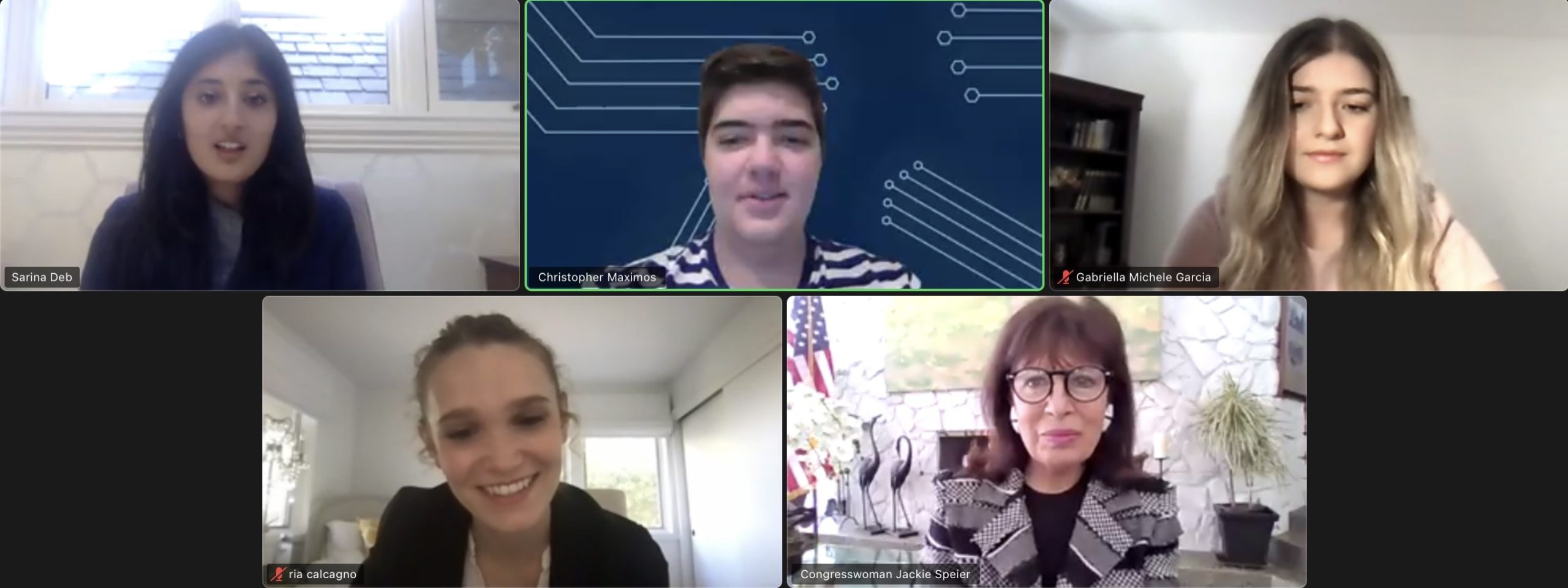Technology has transformed the sociopolitical state of the country, and the government must quickly adapt to preserve democracy, said Democratic Representative Jackie Speier (CA-14) at a Friday event.
Involved in politics since her twenties, Speier began her career as a staffer to Congressman Leo Ryan. She accompanied him in an investigation to Guyana, where she survived the 1978 Jonestown mass suicide.
After serving in the California state legislature for two decades as an elected public official, Speier won a special election in 2008 and became a representative for the state’s then-12th district. Since the 2010 redistricting, the district covers most of San Mateo County and a southwestern section of San Francisco.
As a lifelong public servant, Speier said that if she could write one bill to secure the U.S. as a democracy, she would center the bill around voter rights.
“If we somehow restrict people’s ability to vote,” Speier said, “that’s where you lose a democracy.”
Speier said she was “very concerned” with the hundreds of bills being introduced and passed by Republican state legislatures to restrict voter turnout, which she described as “the new Jim Crow laws.” However, she said she had faith and confidence that the younger generation can pass equality and anti-discrimination laws.
“I just want to leave you with the expectation that you don’t get a pass just because you’re going to one of the finest universities in the world and could do anything,” Speier said. “I want you to realize that you have a higher calling and a higher responsibility to make this a better world.”
Speier warned about the dangers of modern technology on U.S. democracy. She said that social media has given domestic terrorists the ability to organize and amass much more rapidly although she added that “racism has been the body politic of this country from its very beginning.” While white supremacists could only come together slowly through established organizations such as the Ku Klux Klan in the past, Speier said online forums that allow for rapid communication helped enable the Jan. 6 storming of the Capitol.
“I don’t think we can be confident under the present circumstances that we won’t see another insurrection like we saw on January 6,” she said.
Despite its dangers, technology has also brought benefits to American democracy, according to Speier. She pointed to the ongoing COVID-19 pandemic, where technology made it possible for many Americans to continue work and schooling.
Speier said she has gone from holding in-person town halls with audiences of about 300 to telephone town halls with as many as 18,000 people as a result of technological advances. She said this allowed her to connect with more of her constituents than before: “I had this richness of being able to hear from lots of different views.”
While Speier has benefited greatly from technology, she acknowledged that it has left knowledge gaps in the current Congress — the average Congressmember’s age is 58. Speier herself is 71.
“I think that will change dramatically in the next five to ten years as more members retire and as younger members get elected,” Speier said. “You’re going to see that change swiftly.”
In relation to technology, Speier spoke about the country’s vulnerability to cyberattacks — the most recent being the Colonial Pipeline cyberattack that caused a temporary gas shortage on the East Coast.
“The United States is particularly vulnerable because we are an open society,” Speier said. Unlike China, where the state strictly governs the market, the United States has a mostly privatized grid, according to Speier.
She said that most of the time, cyberattacks are not launched against the large corporations that directly take government contracts, but rather the subcontractors that work for those large corporations.
“There’s no requirement for these independent entities and companies to report a cyberattack,” Speier said. “Moving forward, we’re going to have to provide greater regulation of this independence.”
